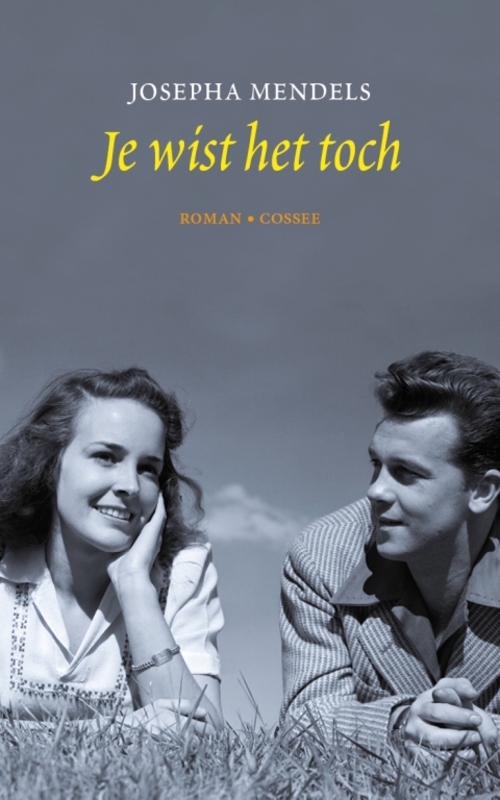
Josepha Mendels was the first winner of the Anna Bijns Prijs for female authors in 1986. It was the coronation of an impressive oeuvre. With the reissue of her most powerful novel, I told you so, a new generation of readers can become acquainted with a major Dutch literary talent.
In 1943 the war starts to close in on the Netherlands and hiding is dangerous. Frans and Henriëtte decide to flee to London, where they meet each other by chance. Cut off from their homeland and completely isolated, they jump head first into their new lives, and what develops into a serious love affair. As a sign of their temporary alliance they give each other new names, one is called Amoebe, the other Goblin. She isn’t bothered by his affairs, he is revived by her contagious willfulness. They create a unique way of living together and the temporary state of their affair, makes it even more special. They know this will not last forever. When the war is over, Frans will have to return to his family in the Netherlands.
Mendels shows us the cruel necessity of love during the harshest times. And how love can be a savior when two lost souls are away from their family and homeland. With sharp observations and beautiful sentences, Mendels combines the reality of wartime Holland with a merry London love story, far away from the atrocities. But the atrocities still find their way back into their lives. It is impossible to flee. Even when you are far away.
‘Josepha Mendels created an image of the independent woman in a magnificent way, humoristic and poetic. No one wrote more enthralling about sexuality in a time when writing about sexuality was not done.’ – De Tijd
Who was Josepha Mendels? [..] We get close to an answer in Je wist het toch from 1948 that has deservedly been republished by Cossee. Even though it’s fiction, the main character of the biography, Henriette, actually really comes to life in the novel. Mendels must have been that kind of person: a woman that was totally alone in life, but with humour and good spirits made the best of it. An emotional, witty woman that would rather be considered harsh than pitiful.’ – de Volkskrant****
‘Josepha Mendels created an image of the independent woman in a magnificent way, humoristic and poetic. No one wrote more enthralling about sexuality in a time when writing about sexuality was not done.’ – de Tijd
‘Josepha Mendels shows the reader a world where the female voice is leading. In which the men are mostly astonishing. Thus the roles are reversed.’ – Anna Bijns jury, 1986